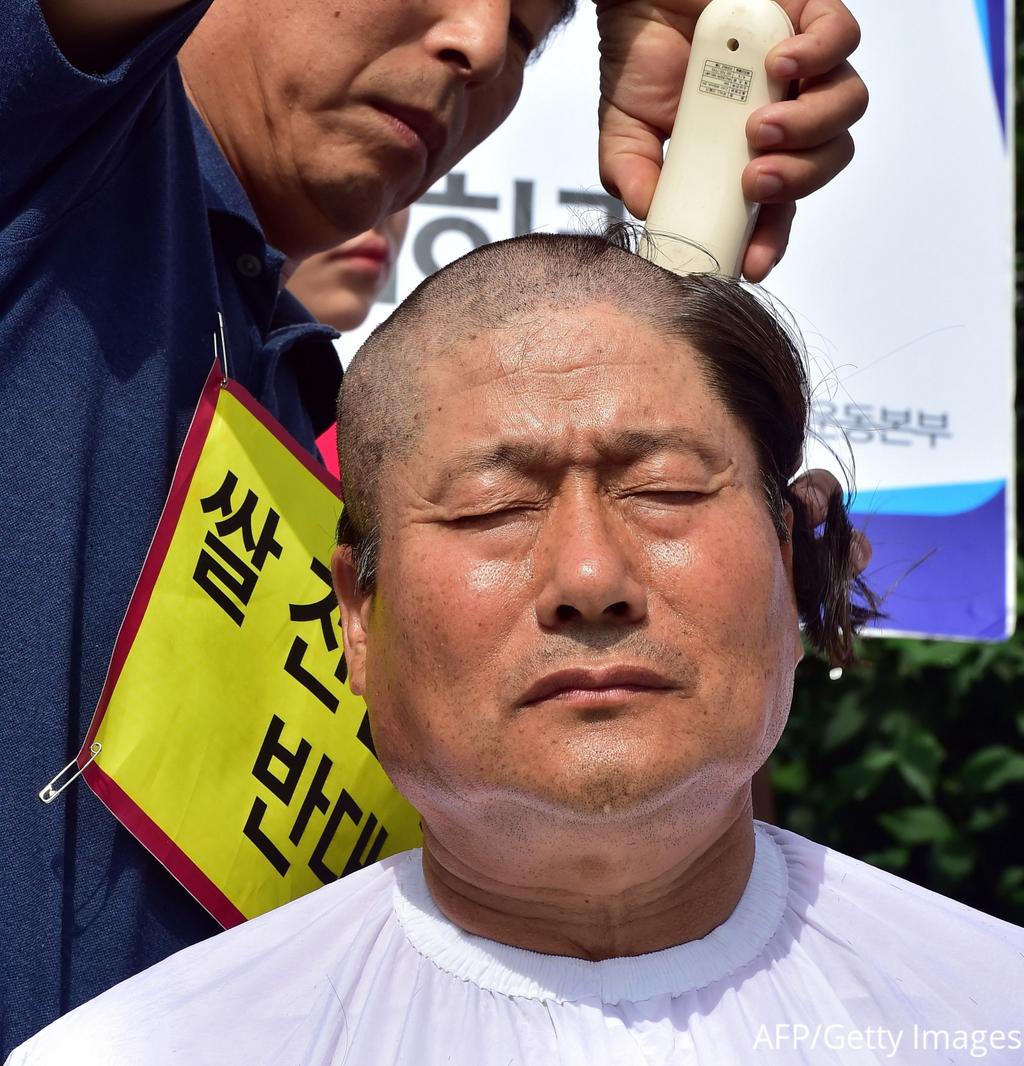South Korea farmers begin fresh protests against rice market liberalization
Oryza.com | Aug 01, 2014
South Korea farmers begin fresh protests against rice market liberalization
South Korean rice farmers have begun fresh protests to show their dissatisfaction over government’s move to liberalize the rice market from next year, according to local sources.
Farmers unions in Jeolla province ploughed up their own rice fields, which are almost ready for harvest, and burned a crude effigy of the Ministry of Agriculture yesterday demanding the government to continue with WTO import quotas. “We are desperately showing our willingness to protest,” a local farmer told media sources.
Farmers have been against the rice import market opening saying the move would threaten their livelihoods. They are not convinced by the government’s assurance that between 300 - 500% of tariffs would be imposed on rice imports in order to protect local rice farmers. They say the government would adhere to its promise for few years and later on local rice would have to compete with cheap imports.
According to local sources, farmers are demanding a Rice Tariff Law and also want the government to exclude rice from all future Free Trade Agreements (FTA). “Under world trade orders like the Uruguay Round and FTA’s, the government is always victimizing the farmers," a farmer was quoted as saying.
However, the government has reiterated that opening the rice market was necessary to control rice supplies in the country as well as to protect local rice production in the light of declining consumption. Seeking a waiver again would automatically increase the country’s minimum market access (MMA) quota forcing more imports into the country. Also, since South Korea already sought a waiver twice, getting a waiver for third time would be associated with huge costs such as concessions to other WTO members.
Sources at the Ministry of Agriculture again assured that the new tariffs coupled with the direct payment system (introduced in 2004 to subsidize income levels) would provide requisite protection to rice farmers.






